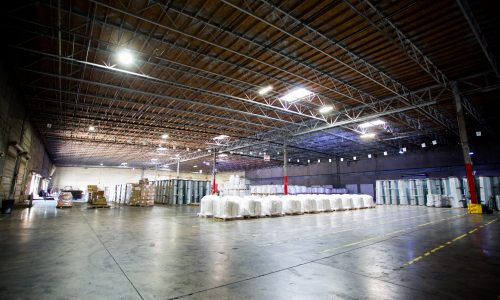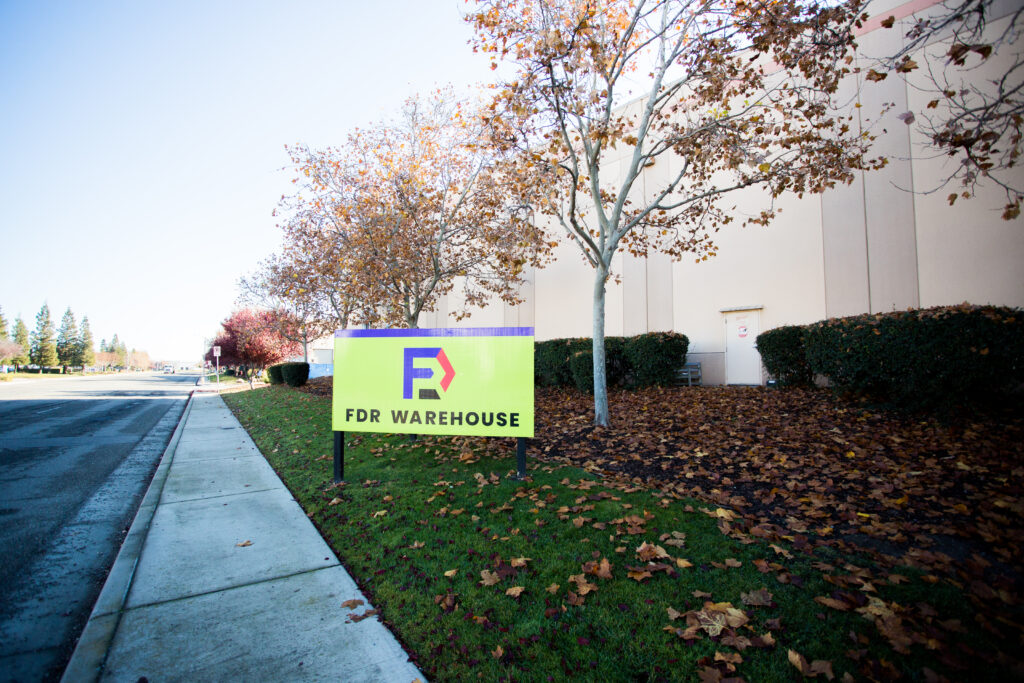How Technology is Revolutionizing Logistics Services and Boosting Business Efficiency

Head of Marketing

As businesses worldwide continue to grow, the need for efficient logistics and supply chain management has become more critical than ever before. Fortunately, technological advancements have revolutionized logistics services– enabling businesses to streamline their operations and enhance efficiency.
In this article, we’ll discuss technology’s Impact on logistics services, the benefits it offers businesses, and the future of logistics.
Technology's Impact on Logistics Services
Automation and Robotics in Warehousing
Automation and robotics are among the most significant technological advancements that have transformed logistics services. With automation, warehousing activities such as loading, unloading, and order fulfillment can be carried out swiftly and efficiently.
Robotics assist in tasks such as inventory management, which is essential in large-scale warehouse management. Overall, automation and robotics reduce labor costs and enhance operational efficiency.
RFID Technology for Inventory Tracking and Management
Radio-frequency identification (RFID) technology has become a popular tool for inventory tracking and management. RFID tags are affixed to individual products, making tracking their movement throughout the distribution process easy.
Thanks to RFID technology, businesses can easily monitor their inventory levels, track shipment details, and improve supply chain visibility.
Real-time Tracking and Monitoring of Shipments
The advent of GPS tracking technology has enabled real-time tracking and monitoring of shipments. This technology enables shippers to track and monitor their goods in real-time and provides up-to-date information on their location, condition, and expected delivery time.
The use of GPS tracking technology enhances supply chain visibility- enabling businesses to make more informed decisions and improve customer satisfaction.
Big Data Analytics for Supply Chain Optimization
With the rise of big data, logistics providers can extract valuable insights from the massive amount of data generated by transportation and logistics processes. Big data analytics is one technology that has transformed logistics services, boosting efficiency and reducing costs.
By analyzing data generated by logistics processes, businesses can detect patterns, identify bottlenecks, and make informed decisions to optimize their supply chain.
Cloud-Based Logistics Management Systems
The adoption of cloud-based logistics management systems has revolutionized logistics services as well. The cloud-based logistics management system offers a comprehensive platform for businesses to manage their logistics operations.
This technology enables businesses to access real-time data on inventory levels, suppliers, and customers- allowing them to make informed decisions about their supply chains.
Benefits of Technology-Enabled Logistics Services for Businesses
There are many benefits that businesses can reap from technology-enabled logistics services. Here are some of them.
Enhance Efficiency & Productivity
Businesses can achieve enhanced efficiency and productivity by using technology-enabled logistics services. Automation, real-time tracking and monitoring, and cloud-based logistics management systems streamline logistics operations- handling tasks that would have taken hours or days if done manually.
Enhance Accuracy & Reliability
Second, technology-enabled logistics services enhance accuracy and reliability. With RFID technology, for example, businesses can monitor their inventory precisely- leading to fewer errors when managing inventory levels.
Also, with cloud-based logistics management systems, businesses can manage workloads better- reducing the risk of missed shipments or lost inventory.

Faster & Reliable Fulfillments
Technology’s impact on logistics services allows faster and more reliable order fulfillment. By accessing real-time data and using automation and robotics, businesses can fulfill orders quickly and efficiently- leading to better customer satisfaction.
Reduced Operating Costs
Big data analytics and optimization of supply chains can help logistics services reduce operating costs- making them more competitive in the market. By reducing costs, logistics services can offer better pricing options to their customers, boosting their appeal to a wider customer base.
Improved Customer Service
Overall, technology-enabled logistics services can greatly improve customer experience and satisfaction. Faster shipping times, accurate tracking information, and on-time deliveries all contribute to a positive customer experience- leading to higher rates of customer loyalty and recurring business.
Future of Technology's Impact on Logistics Services
Emerging technologies such as artificial intelligence, blockchain technology, and the Internet of Things (IoT) are set to transform logistics services even further. For example, blockchain technology offers greater transparency and accountability, while AI can enhance decision-making processes significantly.
The IoT provides real-time data about goods throughout the supply chain- allowing for better decision-making, better management of stock levels, and improved efficiency.
Overall, the future of logistics services technology looks promising- allowing enhanced productivity and offering smooth operations to help companies meet their business goals.
FDR Warehouse in Stockton, CA- Your One Warehousing and Logistics Solution!
At FDR Warehouse, we understand technology’s impact on logistics services and the value it has. We have implemented advanced solutions to help our clients optimize their supply chains.
FDR Warehouse offers 24/7 customer service, available space, and flexible solutions. We are conveniently located close to I-5, Highway 99, Highway 4, Union Pacific, BNSF railways, Port of Oakland, and Port of Stockton.– making transporting goods easy and efficient.
Do you want to learn more about FDR Warehouse and how we can help you optimize your supply chain? Request a quote at (209) 780-5042 or schedule a time to talk to us and see the difference that technology-enabled logistics services can make for your business!